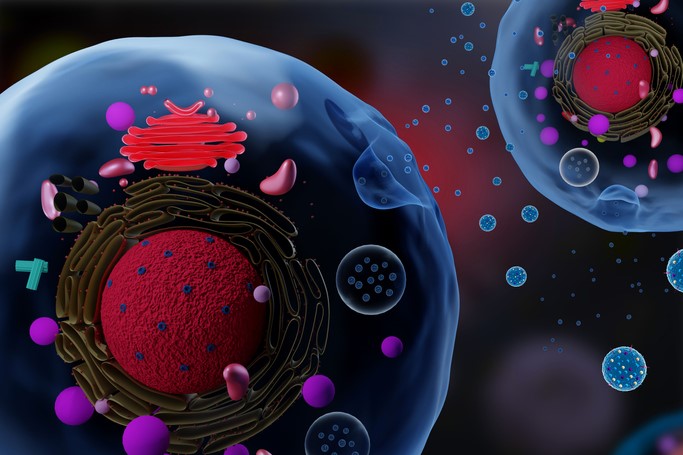
Cells in the body share material via tiny vesicles that shuttle between them, carrying molecular payloads from one cell to another. Evox Therapeutics is developing medicines that leverage this mechanism as way of accessing cells and tissues that are beyond the reach of current drug technologies.
The biotech has research partnerships with two large pharmaceutical companies. Now it has $95.4 million to advance into clinical testing with several rare disease drug candidates. Redmile Group led the Series C round of funding.
The tiny vesicles that move between cells are called exosomes. They are versatile, capable of transporting various types of molecules. They can also move those molecules across boundaries, such as the blood-brain barrier.
Oxford, United Kingdom-based Evox engineers exosomes for the targeted delivery of therapeutic cargo. The company’s internal pipeline includes preclinical drug candidates designed to carry proteins and nucleic acids. Two internal programs are focused on urea cycle disorders; a third program is in development for an undisclosed rare disease.
The biotech is developing two programs with Takeda Pharmaceutical under an alliance announced last March. The first is a preclinical therapeutic candidate for Niemann-Pick disease type C, an inherited disorder that renders the body unable to properly process and recycle fats, which in turn leads to tissue damage. The second partnered program addresses an unspecified rare disease. The alliance set up Evox for $44 million up front in near-term milestone payments and research funding.
Evox is also collaborating with Eli Lilly, research that is addressing five undisclosed neurology targets. That partnership paid Evox $20 million cash up front, with the potential of $1.2 billion in milestone payments pegged to the progress of the drug research.
Evox launched in 2016 with technology based on research from Oxford University and Karolinska Institute. The biotech last raised money in 2018, a Series B round of funding totaling about $45.4 million. Evox isn’t the only company developing exosome-based drugs. Cambridge, Massachusetts-based Codiak Biosciences, which completed an $82.5 million IPO last October, has two cancer programs in early-stage clinical development.
With its new capital, Evox said plans to advance several of its rare disease candidates into human testing. The biotech will also continue to develop its exosome technology, which it calls DeliverEX.
The latest funding round added new investors OrbiMed and Invus. With the financing, Chau Khuong, partner at OrbiMed, is joining the Evox board of directors. Earlier investors also participated in the financing, including Oxford Sciences Innovation, GV, and Cowen Healthcare Investments. Also, Eli Lilly converted a $10 million convertible note into equity. That note was part of the collaboration with the pharmaceutical giant that started last year.
Photo: Getty Images, Meletios Verras










